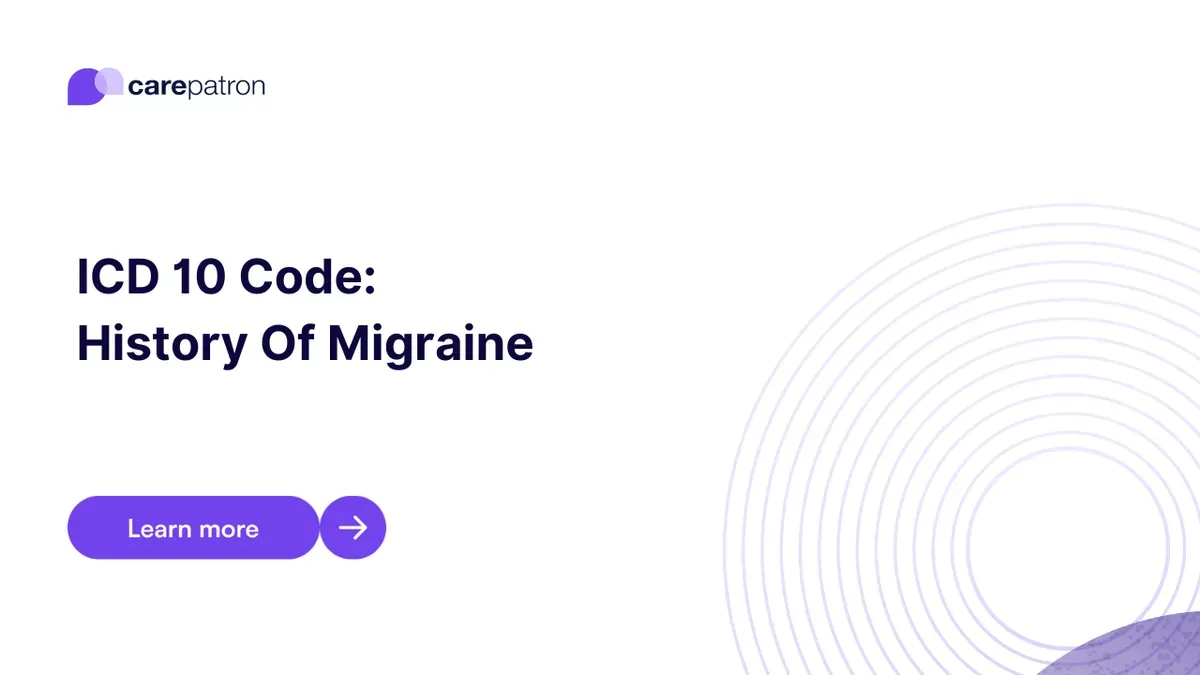
History Of Migraine ICD-10-CM Codes
Explore the ICD-10-CM codes for a history of migraines in 2023. Understand the coding system for past migraine episodes and gain insights into this condition's documentation.
Use Code
Commonly asked questions
It's possible that a history of migraines could impact insurance coverage or premiums, especially for health or disability insurance. Insurance providers may consider pre-existing conditions when determining coverage and rates.
A history of migraines does not necessarily imply that a patient will continue to experience migraines in the future. Migraine frequency and severity can vary over time, and some individuals may experience long periods without migraines.
Documenting a history of migraines is essential for providing comprehensive healthcare. It helps healthcare providers understand the patient's medical background, make informed treatment decisions, and track changes in migraine patterns over time.
EHR and practice management software
Get started for free
*No credit card required
Free
$0/usd
Unlimited clients
Telehealth
1GB of storage
Client portal text
Automated billing and online payments
